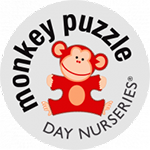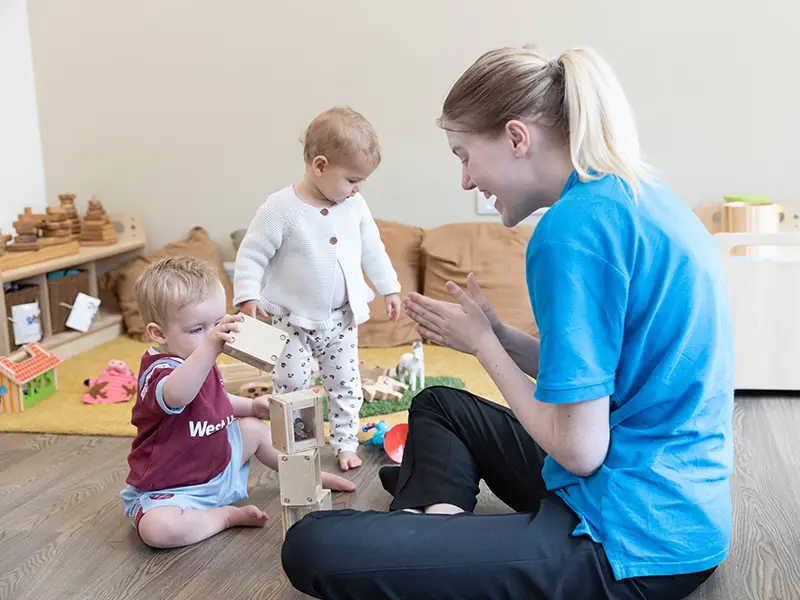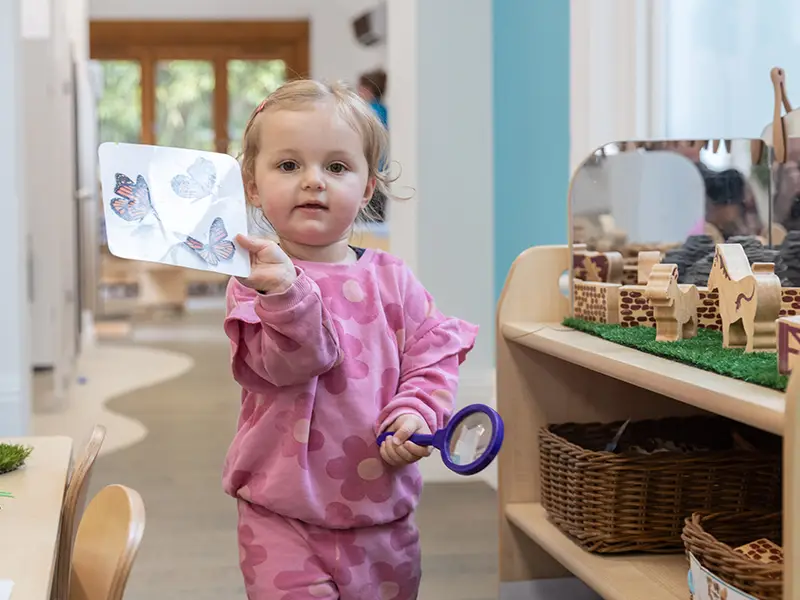Deciding when to enrol your child in a nursery is a significant consideration for parents. The age at which children should start nursery can vary based on individual circumstances, developmental readiness and family preferences.
Balancing the benefits of early socialisation, cognitive stimulation, and structured learning with the child’s comfort and emotional well-being is essential.
Exploring the factors that influence this decision can help parents find a nursery that aligns with their child’s unique needs and the family’s dynamics.
What is the best age for a child to start nursery?
The optimal age for a child to start nursery is determined by several factors, including the child’s developmental stage, individual needs and family circumstances. Generally, most nurseries accept children from around 2 to 3 years old. This is a crucial period when children explore their environment, develop social skills, and benefit from structured learning experiences. In fact, starting nursery at this age can enhance cognitive, emotional and social development, preparing them for school.
However, there’s no one-size-fits-all answer, as some children may be ready to start earlier, while others might benefit from more time at home before entering an educational setting. Parents should consider their child’s temperament, readiness for separation and exposure to social interactions.
It’s also essential to choose a nursery that aligns with their child’s needs and values, fostering a positive and nurturing environment for a smooth transition into early education.
Benefits of sending your child to nursery
Sending your child to a nursery can offer a range of valuable benefits for their overall development and future success. Firstly, nurseries provide a structured learning environment that promotes cognitive, social and emotional growth. In fact, early exposure to educational activities, interactive play, and social interactions with peers can enhance language skills, problem-solving abilities and emotional resilience.
Nurseries also offer a chance for children to develop essential social skills, such as sharing, teamwork and communication. Interaction with diverse groups of children helps build confidence and adaptability, setting a strong foundation for their future relationships.
Moreover, nursery settings encourage independence and self-care as children learn to follow routines, make choices and take care of their belongings. This readiness for self-sufficiency contributes to a smoother transition to formal schooling.
Beyond the developmental advantages, nurseries provide a safe and supervised environment, allowing parents to pursue work or other commitments with peace of mind.
Considerations to determine the ideal age to send your child to nursery?
Deciding when to enrol your child in a nursery is a significant decision that requires thoughtful consideration. Various factors come into play when determining the ideal age for this transition. From social readiness and developmental milestones to personal family dynamics, finding the right time involves weighing these considerations carefully. Find out more below.
Children aged 0-1
For children aged 0-1, the decision to start nursery is often driven by parental work commitments, support systems and personal preferences. Considerations include the availability of family caregivers, such as grandparents or extended family, and the flexibility of parental work schedules.
Babies in this age range also require substantial care and attention, making it essential to evaluate the nursery’s ability to provide a nurturing and developmentally appropriate environment.
Parents might also factor in their child’s readiness for social interaction and stimulation, ensuring that the nursery setting aligns with the child’s evolving needs and developmental milestones during these crucial early months.
Children aged 1-2
For children aged 1-2 years, the decision to enrol them in a nursery involves a mix of developmental factors and family circumstances.
Parents often assess their child’s increasing curiosity and social interaction skills. Considerations include the child’s readiness for a structured learning environment, exposure to peers and opportunities for early socialisation.
Families might weigh the benefits of early educational experiences against the child’s need for consistent care and bonding. Overall, the focus is on providing a balanced environment that nurtures the child’s growth while aligning with their emerging developmental needs.
Children aged 2-3
For children aged 2-3 years, deciding on nursery attendance involves key developmental and practical considerations. This stage marks a time of rapid growth in language, motor skills and social interactions.
Parents often evaluate their child’s readiness for increased peer interaction and structured learning activities. Considerations include the child’s level of independence, curiosity and ability to communicate needs.
Families should assess the benefits of early education for cognitive development and socialisation against the child’s need for consistent routines and emotional support.
Work schedules, available childcare options and family dynamics also play a role in determining the ideal age for nursery enrollment.
When determining the right age for your child to start nursery, remember that every child is unique. By considering developmental milestones, social interactions and your family’s needs, you can make an informed decision that sets the stage for a positive early learning experience. Contact us today at Monkey Puzzle to begin this exciting educational journey with us.



